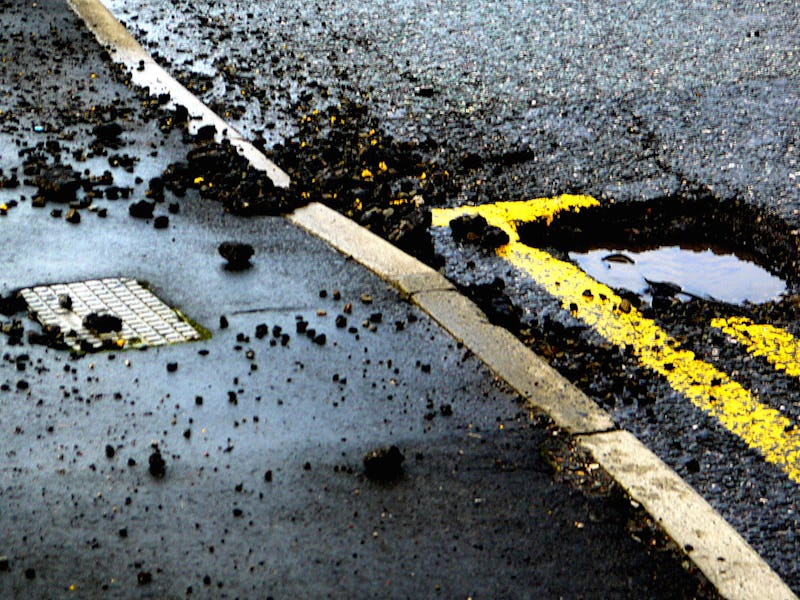Range Rover Embraces Data Taxation With Pothole Program
Information isn't free unless a British marque is throwing it at you.

Jaguar Land Rover has gone public with plans to install sensors in new Range Rover SUVs that detect potholes, helping drivers avoid flats and bumps. It’s a luxury feature fit for a luxury car, but that description was also a bit of lede-burying because the cars will send the pothole information to transit authorities. That’s the cool, public-minded bit. And also the bit that implies a new kind of taxation.
Pothole information sharing is a voluntary tax on a luxury good. The tax just doesn’t take the form of money; it’s pure data.
The premise here is interesting: The sort of people who can afford a $41,000 Range Rover Evoque or $38,000 Discovery Sport will help authorities keep the roads clear for everyone. Yes, this is in the Range Rover drivers’ interest, but in the exact way that supporting a central government in order to protect personal property is in someone’s personal interest. It’s a voluntary tax and it represents the incredible value of available data. The cars aren’t collecting information they wouldn’t otherwise harvest, just sharing it.
But nothing in life is totally untainted by money or commerce. The catch here is that Range Rover drivers will help clean up the public roads in neighborhoods frequented by Range Rover drivers. In other words, authorities will have access to information about potholes in wealthy neighborhoods, but not in poor neighborhoods, making it easier to make nice streets pristine than to make pockmarked streets a bit smoother. The technology represents meaningful progress — it doesn’t have a downside per say — but also the fact that information collection can be a privilege.
Perhaps the information, not the car, is really the luxury good. All the more reason to pay a data tax and all the more reason to take an occasional detour.